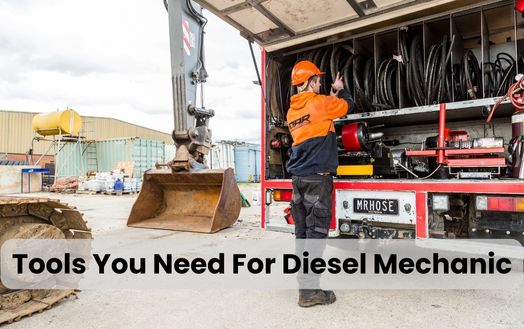
Diesel mechanics know how important proper tooling is. Up to 20,000 parts work together in a diesel engine. We need the right tools to maintain and repair these complex systems.
From hand tools to diagnostic equipment, every tool in our toolbox helps these powerful engines run smoothly. Let’s examine the tools you need for diesel mechanic and how they help us succeed.
Diesel mechanics need a set of essential hand tools to work efficiently. Our daily work relies on these tools to help mechanics get the job done quickly and accurately. An essential tool for diesel mechanics is the wrench. This versatile tool comes in various sizes and types, making nuts and bolts easy to handle. Mechanics need wrenches to loosen stubborn bolts and tighten critical components.
Screwdrivers, pliers, sockets, and hammers are essential hand tools, along with wrenches. The specific functions of each tool improve our work efficiency. We need screwdrivers to remove or install screws in delicate areas, and pliers to manipulate small parts. We need sockets for larger bolts and hammers for stubborn or rusted parts.
Diesel mechanics who want to succeed must buy good hand tools. These tools improve productivity, vehicle safety, and longevity. With the right tools, we can perform top-notch maintenance and repairs, setting new diesel mechanics standards.
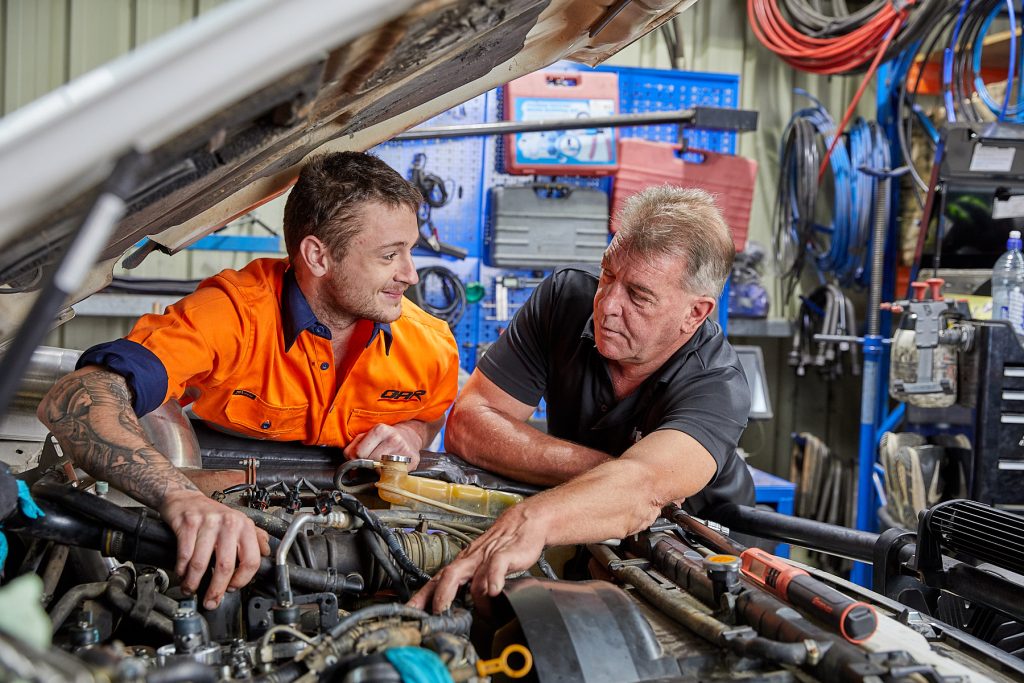
Diesel mechanics use advanced diagnostic equipment to diagnose and fix modern vehicle issues. Diesel technicians must use cutting-edge tools for efficiency and precision.
A diesel technician requires four essential pieces of innovative diagnostic equipment:
Diesel technicians need the right diagnostic equipment to diagnose and repair vehicles in today’s ever-changing diesel technology. These tools improve accuracy, speed up troubleshooting, save time, and satisfy customers.
To improve repair and maintenance efficiency and precision, diesel mechanics use air tools. These heavy-duty tools are essential for auto machinery. Air tools can deliver more torque and power than traditional hand tools, making them ideal for tough bolts and nuts on heavy-duty equipment.
Air tools’ reliability and durability are major advantages. Diesel mechanics require long-lasting tools, and air tools meet these needs. Because of their sturdy construction, they can withstand daily workshop use and consistently perform on a variety of machinery and equipment.
In addition to their power and durability, people prefer air tools for their precision. Air tools enable precise control and maneuverability, allowing us to efficiently and accurately tighten engine block bolts or remove stubborn vehicle parts. Air tools help diesel mechanics provide excellent customer service and streamline workflows due to their versatility.
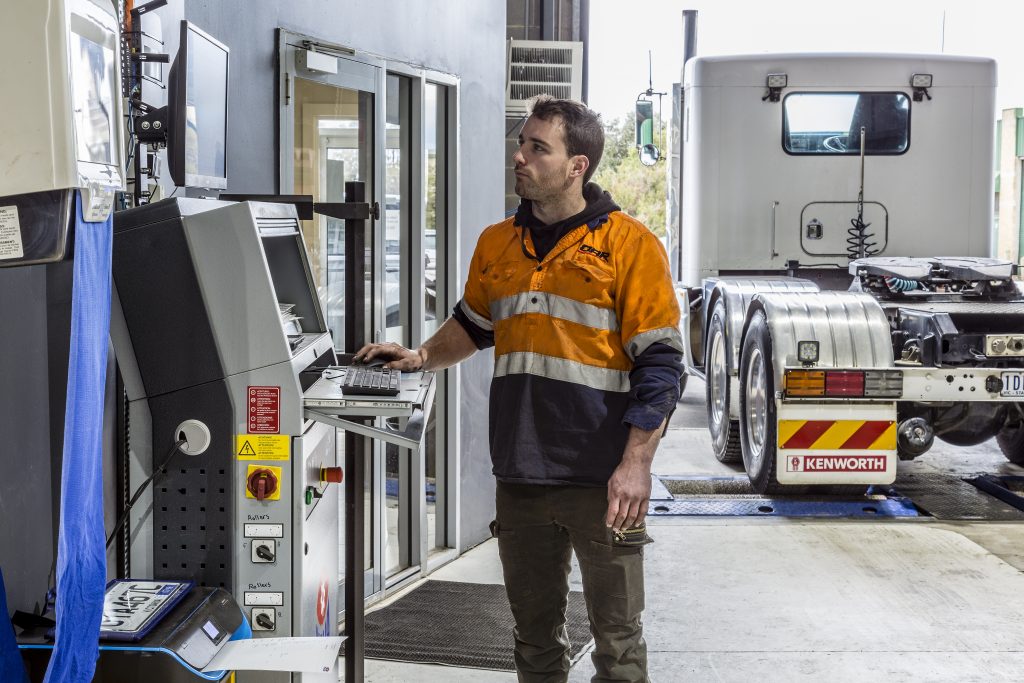
Diesel mechanics need speciality tools to solve complex repair problems quickly and accurately. In order to provide excellent service, we need these tools to diagnose, repair, and maintain heavy equipment.
Here are four innovative specialty tools that every diesel mechanic should have in their arsenal:
For precise bolt and nut tightening on heavy equipment, a torque wrench is essential. As diesel technicians, we know torque is crucial to engine and machinery assembly and maintenance. A torque wrench is essential for diesel mechanics who want to make precise repairs.
The torque wrench lets us force fasteners to the manufacturer’s specifications. Diesel repair requires precision because even a small torque deviation can cause leaks, part failure, or safety issues.
Our jobs are easier and more efficient thanks to torque wrench technology. Digital torque wrenches measure torque in real time and store data. These tools streamline repairs and improve accuracy, resulting in better diesel engines.
Diesel mechanics need impact wrenches to tighten or loosen stubborn bolts and nuts on heavy equipment. We need impact wrenches to work efficiently on diesel engines and heavy machinery.
Here are four reasons why impact wrenches are essential for any mechanic working in the diesel industry:
Any diesel mechanic looking to improve workflow and field results must have impact wrenches in their toolbox.
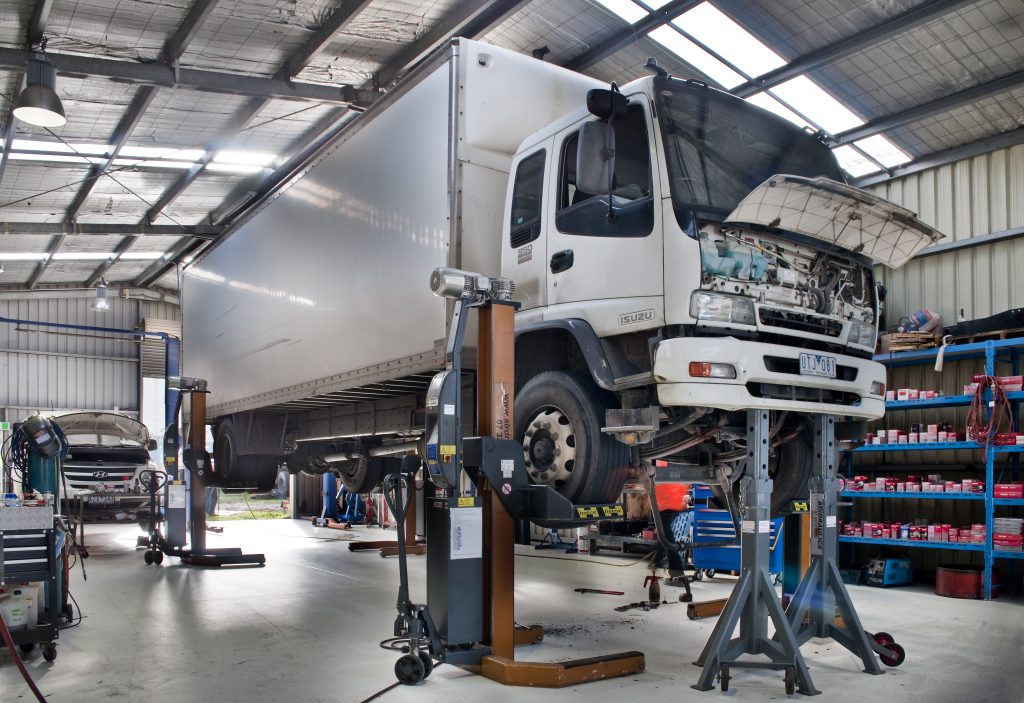
In our diesel mechanic jobs, we require socket sets to fasten heavy machinery and diesel engines. A mechanic’s essential tool is a socket set with a variety of sizes and types to precisely remove bolts and nuts. Beginner diesel mechanics should buy a good socket set for versatility and ease of use in repair and maintenance jobs.
Basic socket sets contain essential socket sizes, while comprehensive sets include a variety of sockets, extensions, and ratchets. Diesel mechanics need a variety of socket sizes to work on diesel engines and heavy machinery components. Modern socket sets also have quick-release mechanisms and ergonomic designs for efficiency and comfort.
When building your mechanic tool set, prioritise high-quality socket sets for durability and reliability in demanding work environments. These multipurpose tools simplify fastening and enhance daily precision. The right socket set is essential for diesel mechanics who want to succeed.
Diesel mechanics need reliable screwdrivers and pliers to fasten and grip heavy machinery and diesel engines. We use these tools daily to complete complex tasks quickly and accurately. For diesel mechanics, screwdrivers and pliers play four important roles:
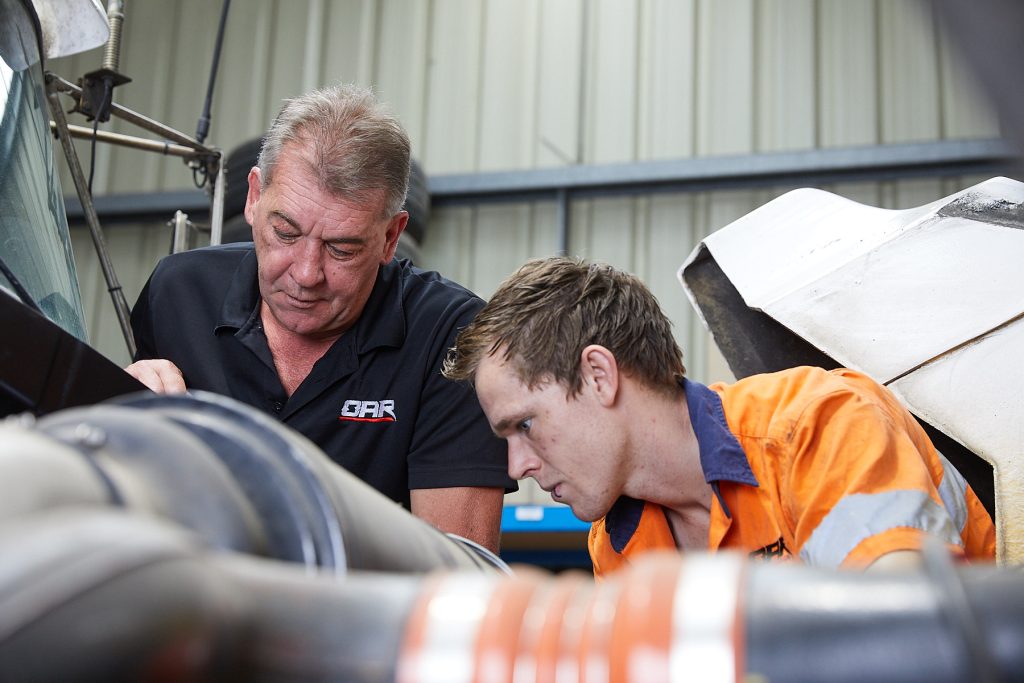
Diesel mechanics need inspection tools to maintain heavy machinery and diesel engines. Our diesel mechanics rely on these tools to closely inspect vehicle components, identify issues, and determine repairs or adjustments. As diesel engine technology advances, quality inspection tools are essential. Let’s discover more tools you need for diesel mechanic.
For accurate and efficient diesel mechanic diagnosis, the right inspection tools are essential. Borescopes, digital multimeters, thermal imaging cameras, and stethoscopes can detect diesel engine issues that aren’t visible. By inspecting engine parts without disassembly, borescopes save time and reduce damage.
Diesel engine inspection tools allow us to do thorough assessments, perform preventative maintenance, and optimise heavy machinery performance. Diesel mechanics can improve diagnostics, efficiency, and vehicle maintenance by investing in high-quality inspection tools.
Electrical testing equipment is essential for diagnosing and troubleshooting heavy machinery and diesel engine electrical systems. Quality electrical testing tools are essential for diesel technicians. Incorporate the following essential items into your diesel electrical testing equipment:
To become a skilled diesel mechanic who can diagnose and repair electrical systems, you must have high-quality electrical testing equipment.
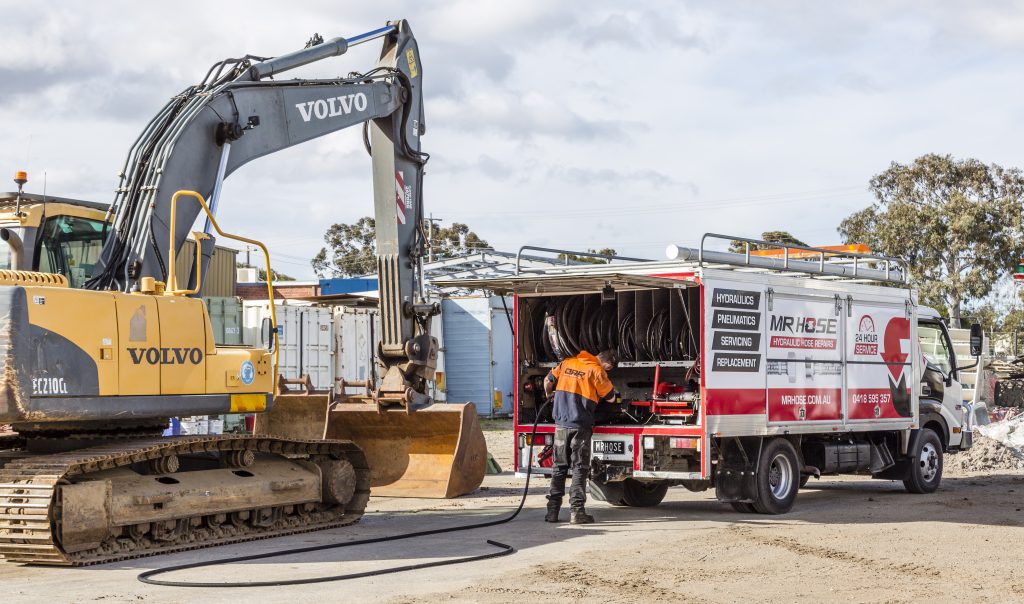
In a diesel mechanic’s workspace, effective tool storage organizes and makes tools accessible. The right tool storage solutions can improve our daily work routine by keeping our garage clean and our tools organised.
Tool carts are versatile tool organisers. While working on different vehicle parts, these mobile units keep frequently used tools close. A well-equipped tool cart can boost efficiency by reducing tool searches.
Any mechanic’s garage needs tool carts and sturdy tool boxes. Tool boxes have compartments and drawers to organise a variety of tools. Organising and placing tools in the tool box makes it easy to find what we need for a task. An organised tool box creates a clutter-free workspace, making it more productive and focused.
Designate garage areas for different tools to maximise efficiency. To streamline workflow and save time, create tool storage spaces based on function or size. Smart tool storage solutions improve workplace safety, productivity, and organisation.
Working in a diesel mechanic’s shop requires proper safety gear. As diesel mechanics, we must prioritise safety by wearing the right gear. Diesel mechanics require the following four safety gear items:
Wearing the right safety gear improves efficiency, comfort, and safety in a diesel mechanic’s dynamic workplace.
To extend equipment life and performance, diesel mechanics must maintain cleaning and lubrication tools. Diesel mechanics work quickly, so tool cleanliness and lubrication are crucial. Clean tools prevent contamination and damage to engine parts, ensuring accurate diagnoses and repairs.
Buying high-quality degreasers, parts washers, and air compressors can speed up and improve cleaning. Diesel mechanics use grease guns and oil dispensers with precision tips to reduce engine wear and friction.
Cleaning and lubrication tools need regular maintenance to work. Cleaning, inspecting, and replacing worn parts on a regular basis keeps these tools in good condition. Diesel mechanics can improve their workflow by staying current on cleaning and lubrication technologies.
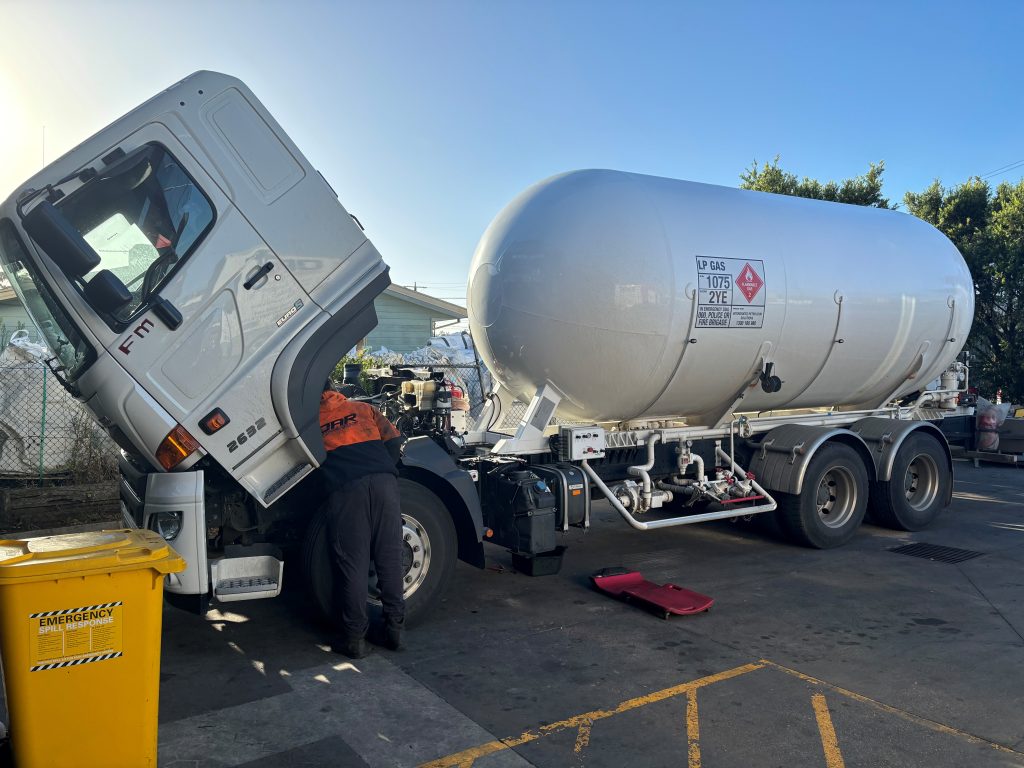
Diverse training programmes and educational resources can improve diesel mechanics’ skills. We must use the latest training and education tools to improve our knowledge in this dynamic field. With these four innovative resources, diesel mechanics can stay ahead:
Overall, having the right tools is essential for success as a diesel mechanic. From hand tools to diagnostic equipment, air tools, and specialty items, each tool serves a specific purpose in ensuring efficient and effective repairs.
Investing in quality tools, proper storage solutions, and safety gear is crucial for maintaining a safe and productive work environment. With the right tools and ongoing training, diesel mechanics can continue to improve their skills and provide top-notch service to their customers. So, these are the tools you need for diesel mechanic.
Quality is key when choosing diesel mechanic tool brands. Snap-on, Matco, and Mac Tools consistently produce high-quality, job-ready products.
Diesel mechanics looking for long-lasting tools should consider these brands.
For optimal performance, we regularly check diesel mechanic tools for accuracy. Calibration intervals are determined by the tool type and manufacturer recommendations.
Precise work and error prevention require accurate monitoring. Routine checks are important to our team for efficiency and accuracy.
Working on heavy-duty diesel engines requires specific tools and equipment. We work efficiently and accurately with these tools.
From wrench sets to diagnostic equipment, the right tools improve task completion.
Other vehicles and machinery can utilize diesel mechanic tools. These tools enable us to efficiently complete a variety of repairs and maintenance tasks.
Having tools that work across platforms allows us to maximize resources and adapt to job requirements without changing equipment.
Being flexible and productive is key.
We clean and lubricate our diesel mechanic tools after each use to ensure proper maintenance. Keeping them dry and secure helps to prevent rust and damage.
Inspection for wear and tear is essential, and we replace worn parts immediately. Following manufacturer maintenance guidelines extends tool life and improves performance, allowing us to work efficiently.